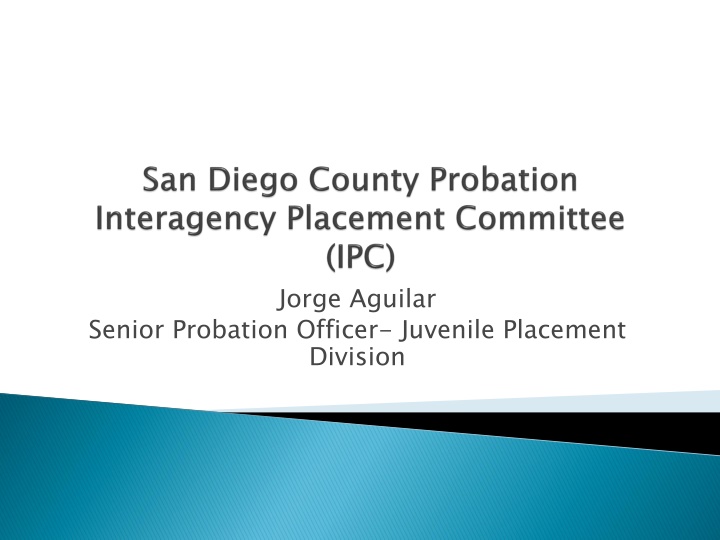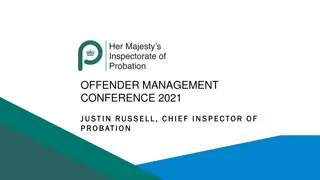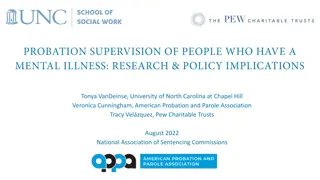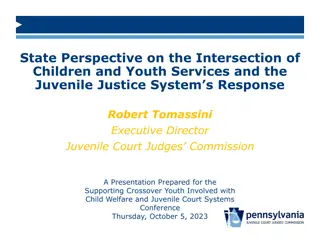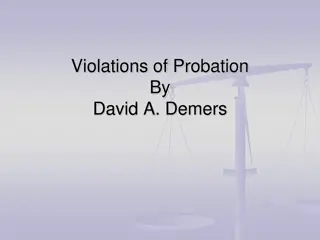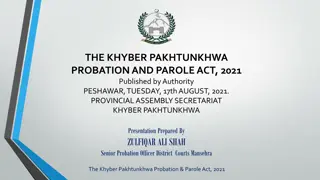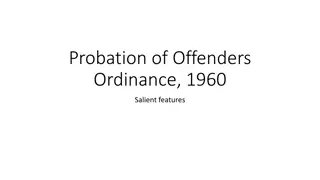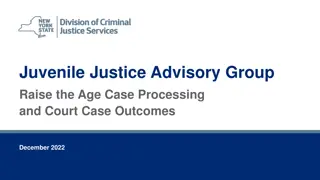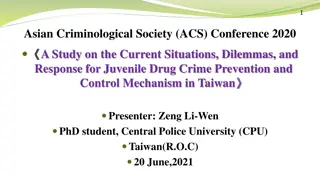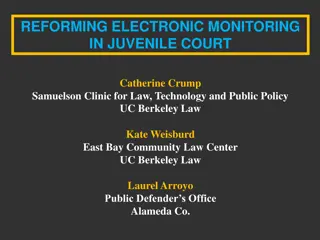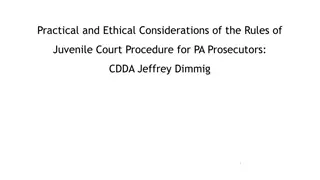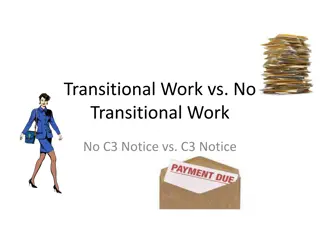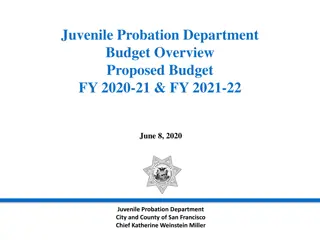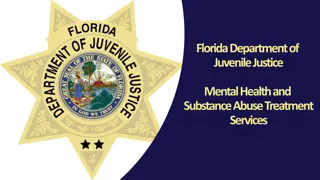Transitional Placement Program for Juvenile Probation Youth
Senior Probation Officer Jorge Aguilar in the Juvenile Placement Division emphasizes the importance of transitioning youth from Short Term Residential Therapeutic Programs to permanent placements with nurturing families. The goal is to provide high-quality, short-term care as part of a comprehensive system of support services. The process involves collaborative case planning among various service providers to ensure the well-being and stability of the youth. Key aspects include assessing and approving placements, setting timelines for transitions, and involving multiple professionals in the decision-making process. The purpose of the Initial Placement Committee (IPC) is to review and approve treatment placements for youth in need, ensuring they receive the appropriate level of care based on individual needs and circumstances.
Download Presentation

Please find below an Image/Link to download the presentation.
The content on the website is provided AS IS for your information and personal use only. It may not be sold, licensed, or shared on other websites without obtaining consent from the author.If you encounter any issues during the download, it is possible that the publisher has removed the file from their server.
You are allowed to download the files provided on this website for personal or commercial use, subject to the condition that they are used lawfully. All files are the property of their respective owners.
The content on the website is provided AS IS for your information and personal use only. It may not be sold, licensed, or shared on other websites without obtaining consent from the author.
E N D
Presentation Transcript
Jorge Aguilar Senior Probation Officer- Juvenile Placement Division
All children live with a committed, permanent, nurturing family When needed, congregate care is short term, high quality, and an intensive intervention that is just one part of a care system available for youth Agencies serving youth include child welfare, probation, mental health, education and other community service providers collaborate with one another to effectively surround the child and family with needed services, resources and supports rather than requiring the child and/or family to navigate multiple service providers Services are coordinated and individualized- cross-systems, collaborative case planning
Major Goal of CCR- Transition Youth from Placement in a Short Term Residential Therapeutic Program (STRTP) to Permanency Youth s Case Plan Must Address the Transition Along with Projected Timelines Placement for Probation Youth Should Not Exceed 12 Months Placement Longer Than 12 Months Requires Assistant Chief Or Chief Probation Officer Approval
Prior to Placement in a STRTP IPC Must Assess and Approve the Placement IPC Members composition: 1. Educational Liaison 2. HHSA Social Worker 3. Probation Officer 4. Public Health Nurse 5. Behavioral Health Services 6. Assigned Probation Officer 7. Juvenile Forensics STAT Team Psychologist
Purpose of the IPC is to review and approve the initial or continued treatment placement of youth in a short- term residential therapeutic program (STRTP). The IPC assessment shall determine whether the child meets one of the following areas: Youth meets the medical necessity criteria for Medi-Cal specialty mental health services Youth s individual behavior or treatment needs can only be met by the level of care provided in a STRTP Youth is experiencing emotional or behavioral problems in the home, community and/or treatment setting 1. 2. 3.
Additional assessments to consider are the following: 1. The youth is not sufficiently stable, emotionally or behaviorally, and is at risk of removal or has already been removed from the home 2. The mental disorder or impairment has been present for more than 6 months or are likely to continue for more than one year without treatment 3. The youth displays either: psychotic features, risk of suicide or violence due to the mental disorder 4. The least restrictive or intensive levels of treatment have been tried and were unsuccessful 5. The least restrictive or intensive levels of treatment are not able to meet the child s needs
Review All Current Placement Cases on a Rotating Basis Initial Review of all Placement Cases After 12 months, Review Cases Every 90 Days Screenings are Conducted Every Tuesday Review 3-4 cases per session
In the event an officer needs to screen a youth for placement in an out of state facility, the officer will present the case with the Multi- Disciplinary Team (MDT) which is made of the same members of the Interagency Placement Committee. The MDT will determine whether or not the youth s treatment needs warrant placement in an out of state facility. Upon the approval of the MDT, officers will then be authorized to make a recommendation for placement in an out of state facility.
Educational Liaison Role: Educational Liaison Role: Review the information as presented by the Probation Officer and provide input related to any educational matters. Examples include, information related to how to obtain an IEP (if needed), educational services the Probation Officer could utilize to better serve the youth, any information related to violations of educational laws, etc. The role of the Educational Liaison is to assist with providing the Probation Officer with any educationally related information which could be used to assist the officer in better serving the youth s educational needs.
Review the information as presented by the Probation Officer and provide input related to any placement needs the youth may have. Examples include recommendations for community services the youth and family could benefit from, recommendations for a particular STRTP, provide information regarding RFA timelines, strategies to assist in reunification, etc.
Review the information as presented by the Probation Officer and provide input related to any community services the youth could benefit from to address any mental health issues, review the psychological evaluation, social study, treatment history, provide suggestions/strategies to assist the youth with managing his/her mental health challenges, and provide insight related to possible causes of specific behaviors the youth may be exhibiting. If the youth does not meet criteria for placement in an STRTP, BHS representative will provide other community treatment resources.
Similar to the BHS representative, reviews the information as presented by the Probation Officer and provide input related to services the youth could benefit from to address any mental health issues, review the psychological evaluation, provide suggestions/strategies to assist the youth with managing his/her mental health challenges, and more importantly provide insight related to possible causes of specific behaviors the youth may be exhibiting while detained or while completing a custodial sanction.
Reviews the information as presented by the Probation Officer and provides input related to any health related issues. Assist in the coordination of service provision with the foster care provider.
